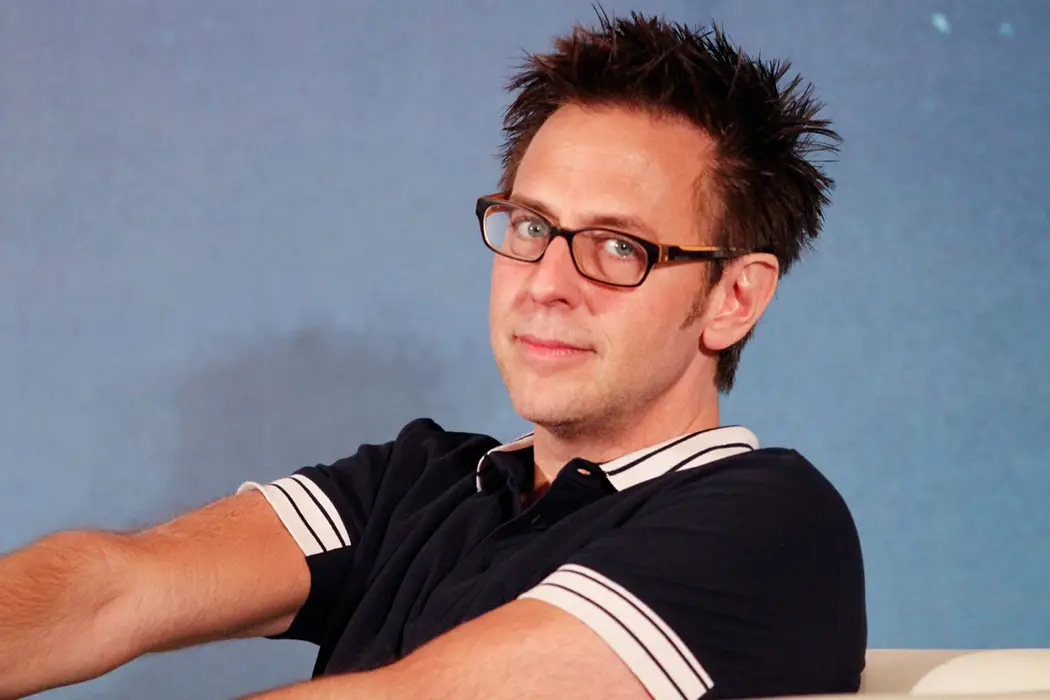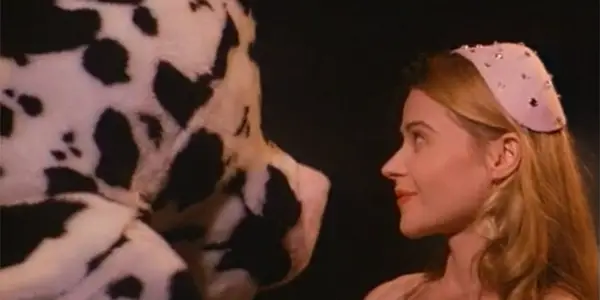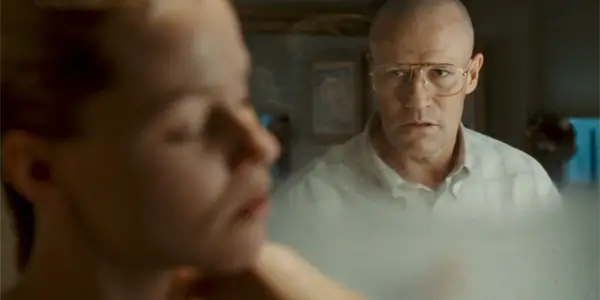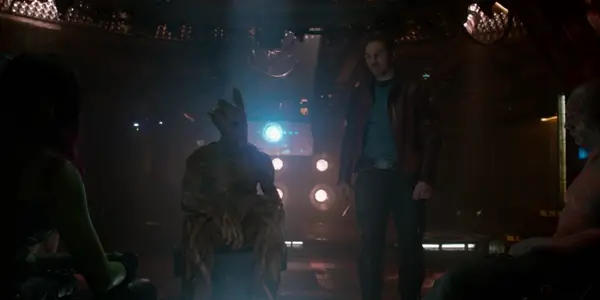The Beginner’s Guide: James Gunn, Writer/Director

Joe George teaches English at the University of North Carolina…
In the summer of 2014, the unthinkable happened: Lloyd Kaufman appeared onscreen in a multi-million dollar Disney blockbuster. How did Kaufman, the president and co-founder of Troma Entertainment, a studio devoted to creating infamously offensive cheapies such as The Toxic Avenger and Class of Nuke ‘Em High, wind up playing an inmate in Guardians of the Galaxy, the third-highest grossing film of that year?
The answer is Guardians director/co-writer James Gunn, who began his career working under Kaufman. Few moments better encapsulate Gunn’s style than that momentary fusion of Disney and Troma. Whether writing the screenplay for a big-screen Scooby-Doo adaptation or directing his violent indie Super, Gunn has kept not only the subversive streak one expects from a Troma alum, but also has a surprising ability to find empathy in the grotesque, something he did even while working for his provocative former employer.
No Budget and No Taste
Across his entire oeuvre, one thing is obvious: James Gunn likes to offend. From his early screenplay for the “day in the life” superhero spoof The Specials, to his more recent PG Porn shorts, an online comedy series featuring pornography scenes that never culminate in sex, Gunn celebrates the crude and irreverent.
For instance, a PG Porn episode called “Helpful Bus” features Craig Robinson as Havana Bob and Sean Gunn, James’s brother and frequent collaborator, as Jason, van drivers who lecherously offer rides to scantily-clad women (played by real-life pornographic actresses, including Bree Olsen and Marie Luv). But when the passengers begin to initiate sex, the men always stop them – in one case, because they’ve arrived at the woman’s destination; in another, because a particularly flirtatious woman was “disrespecting [Bob’s] marriage.” James Gunn surely gets humor from the filthy set-up, but the jokes build to a humane, perhaps even sweet, pay-off.

This mix of sweetness and raunch is more commonly associated with directors like Judd Apatow and Kevin Smith, but Gunn’s humor has an edge to it, one that goes past dirty jokes to outrageous violence and taboo subject matter.
Unsurprisingly, Gunn began developing this style on his first screenplay, for the 1996 Kaufman directed Tromeo and Juliet. Part parody of Baz Luhrmann’s hip 1995 version and part legitimate take on the classic play, Tromeo and Juliet has garnered more critical respect than most of the studio’s releases. But it is still a Troma movie, through and through, complete with a plastic penis monster that attacks Juliet, a head being ripped off and tossed onto a hood of a family car, and numerous jokes about incest and physical abuse.
Yet, within these crude trappings, Gunn refuses to mock the central romance. Nowhere is this best illustrated than in a scene in which Tromeo masturbates to CD-ROM pornography. Even though the movie frequently cuts to a sex scene between Juliet and her girlfiend/nurse, thus showing the viewer plenty of skin, very little nudity appears on Tromeo’s screen. Instead, the actress arouses Tromeo by asking “Would you like to get married” and promising that they will have children together. It’s a good joke, and still dirty, but it works by underscoring the hero’s sincerity.
More Money, Same Sleaze
The irreverent humor and human compassion James Gunn works into his small projects find fuller expression in his bigger independent films. Shortly after The Specials, Gunn wrote the screenplay for the 2004 remake of Dawn of the Dead, directed by fellow future comic book adapter, Zack Snyder. Snyder’s mannerisms arrive in the film’s opening and closing credit sequences, both of which play like music videos, and the “zombies siege a shopping mall” plot comes from the George Romero original, but Gunn’s voice stands out in Dawn of the Dead.
There is plenty of violence in the attacks on and from the zombies, there are offensive jokes (mostly from Ty Burrell’s alpha male Steve), and there is a shocking scene in which Mekhi Phifer pulls his zombie infant daughter from his dead girlfriend’s womb. But one can also find hints of Gunn’s signature pathos, accentuated by nuanced performances from Sarah Polley and Ving Rhames.

Gunn’s idiosyncrasies are most prevalent in the two films he wrote and directed, the alien invasion horror Slither (2006) and the comedy-drama Super (2010). Slither’s aesthetic and plot, about alien worms who turn citizens of a small Texas town into mutated, reproduction-crazed zombies, certainly recalls classics from the VHS era, such as David Cronenberg’s Shivers, Fred Dekker’s Night of the Creeps, and Brian Yuzna’s Society, but it is undoubtedly a James Gunn movie.
Slither has no qualms about asking viewers to laugh at its bumpkin characters, nor does it mind giving them grisly deaths, but it never reduces them to simple caricatures. Not only does James Gunn coax charismatic and nuanced performances from leads Nathan Fillion and Elizabeth Banks, but he crafts a truly unique character with Michael Rooker’s Grant Grant.
Even before he becomes the invasion’s patent zero and mutates into a more stomach-churning version of Jabba the Hutt, Grant is positioned as the antagonist, the rich boor whose loveless marriage to Banks’s Starla keeps her from romantic bliss with Fillion’s noble Sheriff Bill Pardy. But even as Grant transforms into a cannibalistic slug monster, he remains devoted to Starla. Rooker brings genuine feeling to the performance, projecting through layers of gross-out makeup the sadness of a man who can never win the love of his wife.
Likewise, Super both embraces the shocking and builds sympathy for its characters, transcending the Kick-Ass level of superficial satire suggested by its plot description. Rainn Wilson stars as Frank Darbo, a perpetual loser who has a breakdown when his troubled wife (Liv Tyler) leaves him for her drug dealer (Kevin Bacon). Inspired by a vision of Christian superhero The Holy Avenger (Nathan Fillion), Frank becomes the wrench-wielding vigilante, The Crimson Bolt.
The film fully acknowledges the absurdity of a doughy man in a cheap red costume who, full of self-righteous zeal, assaults criminals with a wrench. But it also fully acknowledges the stakes of these actions, both physically and mentally. After Frank bludgeons a non-threatening jaywalker, the camera lingers on the victim’s body, forcing viewers to recognize the consequences of the joke. Scenes like this remind viewers that Frank is neither a pure hero nor a simple joke, but a deeply disturbed man who hurts others in pursuit of meaning, a point made all the more powerful when he gains an even more unhinged teenaged sidekick (Ellen Page).
Super and Slither showcase the best of James Gunn, deftly combining these disparate elements so that they strengthen one another. The offensive parts stay shocking, the funny parts still generate laughs, and the human parts are poignant.
Offending on the Studio’s Dime
Unsurprisingly, the violence and gross-out elements are less prominent in James Gunn’s big budget work, particularly his screenplays for the film adaptations of Hannah Barbara’s Scooby Doo cartoon. Directed by Raja Gosnell, Scooby-Doo (2002) and Scooby-Doo 2: Monsters Attack (2004) stick to the standards of an early 2000s kid flick, complete with bad CG and Smashmouth on the soundtrack.
That said, they do entertain, thanks largely to Matthew Lillard’s game performance as Shaggy and to Gunn’s script. Both movies manage to follow the basic Scooby formula while working in PG versions of Gunn’s sincerity (such as Shaggy and Scooby’s moments of despair when they realize they are the butt of all the jokes) and his irreverence, most prominently in the decision to make Scrappy-Doo, a “cool” pup added to later episodes of the cartoon series, the first feature’s villain.

James Gunn better integrated his voice into his biggest movie to date, the Marvel hit Guardians of the Galaxy. Directing from a script he co-write with Amy Perlman, Guardians not only features the aforementioned Kaufman, but also other Gunn regulars Rooker, Sean Gunn, and Gregg Henry. And while the PG-13 conventions of blockbuster filmmaking relegate the violence to the bloodless destruction of CGI planets, Gunn does manage to work in some disturbing moments, such as a servant girl who gets disintegrated by the movie’s MacGuffin or space pilot (Peter Serafinowicz) being crushed to death in his ship. Likewise, the gross-out gags have been tamed, but are still present, particularly in the one-liners from Star-Lord (Chris Pratt) and Rocket Raccoon (Bradley Cooper).
Despite working within one of the two most well-established comic book universes, Gunn has picked his kinds of characters from their bullpen. Not unlike the damaged failures in The Specials and Super, the Guardians lack the obvious nobility of their Marvel Cinematic Universe counterparts Captain America and Iron Man. Star-Lord is a thief who can’t seem to make a name for himself, Dave Bautista’s Drax is a violent fool, and the rest of the team, including pseudo-love interest Gamora (Zoe Saldana) and the merchandising friendly Rocket Raccoon and Groot (Vin Diesel), are all assassins.
Still Shocking
After the unprecedented success of Guardians, James Gunn appears to be continuing to develop his offensively humane voice. He has returned to Troma to contribute to the online short Dolphinman Battles the Sex Lobsters (2016), and his screenplay for the Greg McLean directed horror film The Belko Experiment (2017) has been described as “Saw meets Office Space.” Early reviews of Guardians of the Galaxy Vol. 2 have been positive, indicating that the film continues the crowd-pleasing humor from the first film, while mixing in a more emotional plot involving Star-Lord and his estranged father.
Since that plot-point somehow involves a sentient planet, it will promise to be a weird emotional plot. But that’s just what we want from a James Gunn movie.
Which James Gunn film do you like best? Does his crude compassion work for you? Talk about it in the comments below!
Does content like this matter to you?
Become a Member and support film journalism. Unlock access to all of Film Inquiry`s great articles. Join a community of like-minded readers who are passionate about cinema - get access to our private members Network, give back to independent filmmakers, and more.
Joe George teaches English at the University of North Carolina at Greensboro. When not teaching about books, movies, and comics, he's writing about books, movies, and comics. He can be found at joewriteswords.com or @jageorgeii on Twitter, but he can never be found outdoors.











